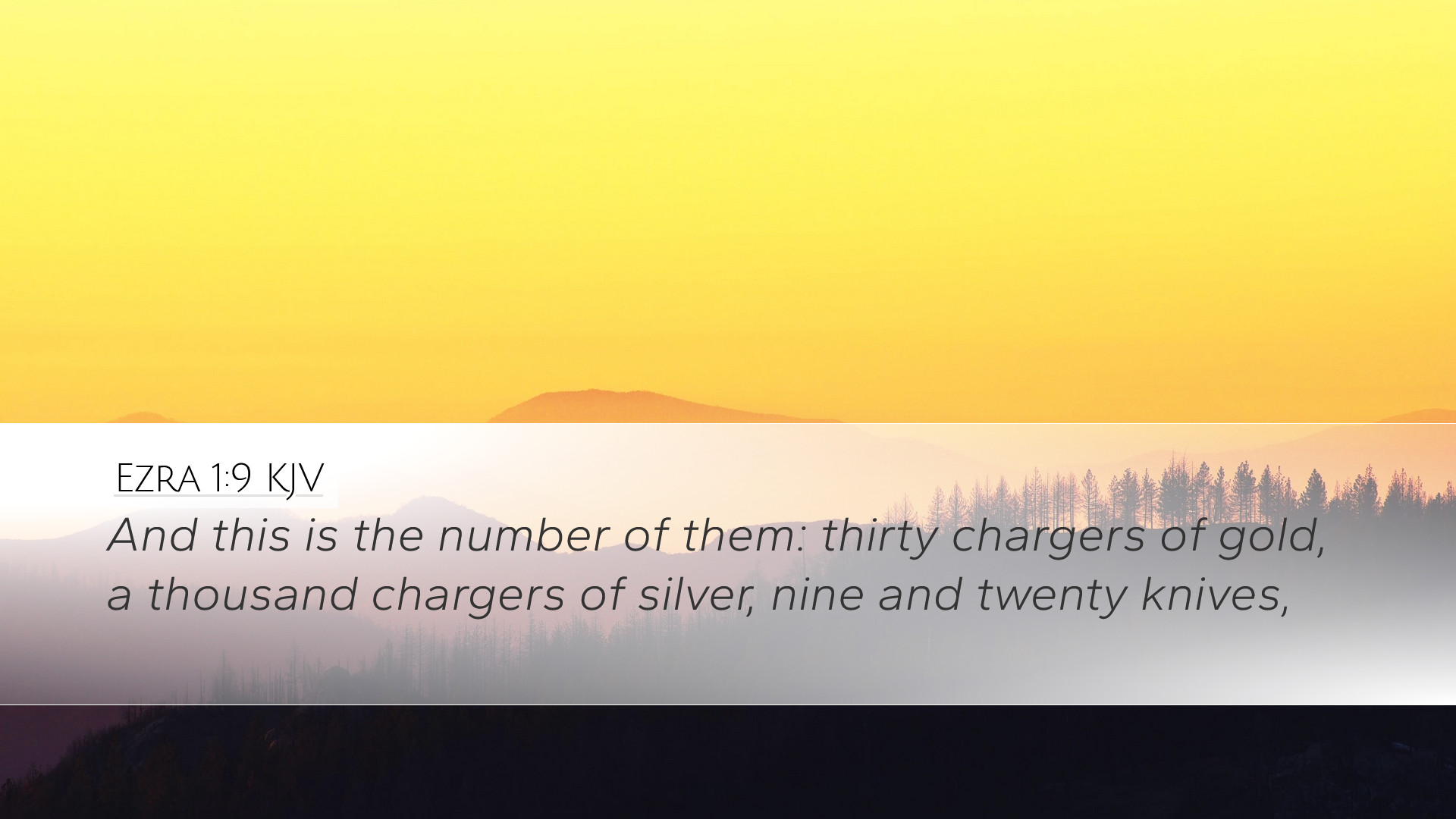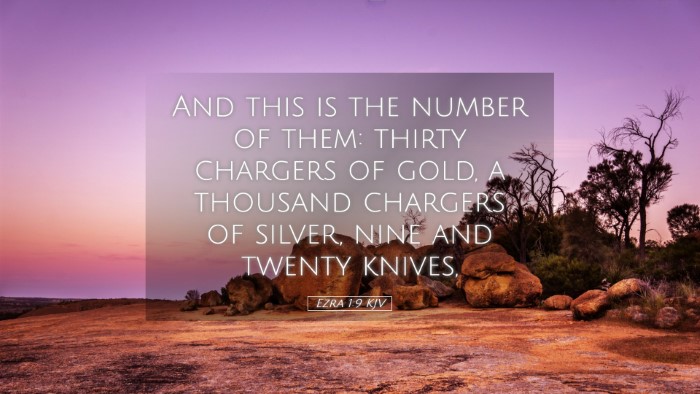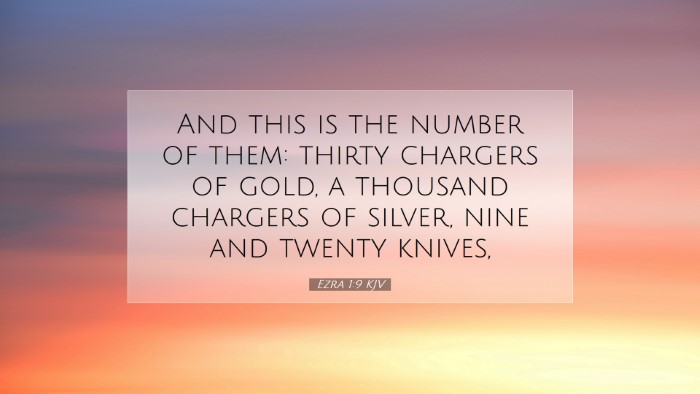Old Testament
Genesis Exodus Leviticus Numbers Deuteronomy Joshua Judges Ruth 1 Samuel 2 Samuel 1 Kings 2 Kings 1 Chronicles 2 Chronicles Ezra Nehemiah Esther Job Psalms Proverbs Ecclesiastes Song of Solomon Isaiah Jeremiah Lamentations Ezekiel Daniel Hosea Joel Amos Obadiah Jonah Micah Nahum Habakkuk Zephaniah Haggai Zechariah MalachiEzra 1:9
Ezra 1:9 KJV
And this is the number of them: thirty chargers of gold, a thousand chargers of silver, nine and twenty knives,
Ezra 1:9 Bible Commentary
Commentary on Ezra 1:9
Ezra 1:9 reads: "And this is the number of them: thirty chargers of gold, a thousand chargers of silver, nine and twenty knives." This scripture is a part of the larger narrative concerning the return of the Jewish exiles to Jerusalem, led by Zerubbabel after the decree of Cyrus the Great.
Context and Background
In the long history of Israel and Judah, the Babylonian Exile marked a significant period of suffering and separation from their homeland. The exiles found their identity profoundly shaken, yet the providential hand of God orchestrated their return. This promise of return, highlighted in prophetic literature, serves as a testament to God's unwavering faithfulness to His covenant.
Insights from Commentaries
Matthew Henry's Commentary
Matthew Henry emphasizes God's sovereignty and the role of Cyrus as an instrument of His purpose. He points out that Cyrus’ decree was a direct fulfillment of prophecy, specifically that of Jeremiah. Highlighting the significant contribution of the vessels, Henry notes that the “chargers” and “knives” were essential tools used in sacrificial practices, underscoring the intent of restoration of worship in the temple.
Albert Barnes' Notes on the Bible
Albert Barnes provides detailed observations of the specific items listed, elucidating their importance in temple service. He notes that the gold and silver items represented not merely wealth but also the dignity and sanctity that would accompany the worship of God. Barnes elaborates that the detailed accounting serves to preserve the memory of these gifts as acts of faith and anticipation for the future worship at the temple.
Adam Clarke's Commentary
Adam Clarke delves into the nature of the items mentioned, providing cultural and historical context. He explains that the “chargers” were bowls or basins used for pouring out drink offerings, while the “knives” were likely for the ritual slaughtering of sacrifices. Clarke notes the significance of such offerings, implying that even in their return, the focus remained on proper worship practices. He also contrasts the wealth brought by the exiles with their humble beginnings post-exile, indicating a restoration of their identity as God’s chosen people.
Theological Implications
This verse serves as a reminder of the importance of worship and the means through which God's people express their devotion. The meticulous recounting of the numbers and types of items offered points to God's desire for order and reverence in worship. Additionally, the historical narrative fosters encouragement to contemporary believers regarding God's faithfulness in restoration and provision.
Application for Pastors and Theologians
For pastors, Ezra 1:9 can serve as a springboard for discussing themes of restoration, the importance of worship, and God’s providential care in the life of the church. The detailed account invites sermons that examine how God still provides for His people today, and the ways in which He calls us to be faithful stewards of what He has entrusted to us.
Key Themes for Discussion:
- The Sovereignty of God: God's authority in directing the affairs of nations.
- Restoration of Worship: How the return to Jerusalem symbolized a return to spiritual roots.
- The Role of Community: The collective effort of the Jewish people in returning.
Practical Applications:
- Encouragement in Giving: Just as the items were given for the temple, how do we contribute today?
- Cultivating a Heart of Worship: The significance of worship as a central aspect of community life.
Conclusion
Ezra 1:9 serves not merely as a historical account but as a profound theological statement on the nature of God's relationship with His people. As we study this verse and its surrounding context, may we be drawn into a deeper understanding of God's faithfulness, the significance of worship, and our call to participate in His redemptive work in the world around us.


